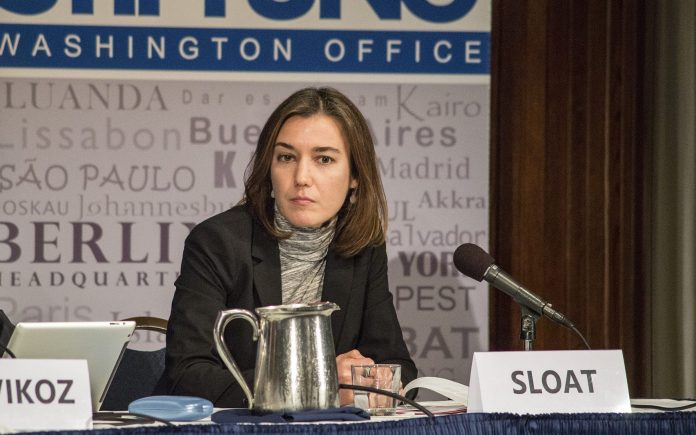Amanda Sloat, President Joe Biden’s representative in Europe, is ending her tenure on the National Security Council, Politico reports.
Sloat was a key figure in the Biden administration’s efforts to mend relations with traditional allies and counter Russia. She worked on key elements of the new team’s transatlantic strategy and accompanied Biden on eight trips to Europe, including five NATO summits and two EU summits. She was also a driving force behind the creation of the “Bucharest Nine,” a group of Eastern European NATO countries united to reinforce the region.
It has been an amazing three years, but it’s time. I’m tired.
Sloat’s tenure on the National Security Council was primarily tied to the outbreak of war in Ukraine in February 2022. US officials stated that she ensured a coherent and effective transatlantic response that resulted in billions of dollars in military and economic aid to Kyiv.
However, not everyone among the administration is pleased with the implemented policy. Officials argue that more advanced weaponry should have been sent to Kyiv in the earliest days of the war, pointing to Ukraine’s failed counter-offensive this year as the evidence.
They also questioned US actions in allowing the Nord Stream 2 pipeline from Russia to Germany to be completed, a decision that Germany cancelled after the war broke out.
Administration officials stated that she, like many of her colleagues, was caught off guard by the US, UK and Australian nuclear submarine deal known as AUKUS. Officials claimed Sloat was dismayed at being sidelined when the agreement was concluded. After the deal was announced, she had to respond to angry calls from France, which cancelled its own treaty with Australia.
According to her colleagues, she handled the situation well, with French President Emmanuel Macron later travelling to the White House for a state visit.
Sloat leaves at a difficult moment when continued support for Kyiv is being questioned not only in the United States, but also in Europe. Some European leaders argue that there is no point in providing more military aid when a Ukrainian victory is not guaranteed.
The resignation of the top US official follows other senior National Security Council figures, such as Russia lead Eric Green, which caused concern among some administration representatives. However, Sloat disagrees with the view that “too much institutional memory is walking out the door.”
We have a lot of people across the interagency who remain in place, and I’ve got a strong team here that has been working on these issues for a while.
Jake Sullivan, the US president’s national security adviser, praised her stance.
“Amanda has been an invaluable part of the president’s team since even before day one, when she triaged the congratulatory calls coming in from leaders around the world. We have relied on her expertise and counsel every day since, especially her leadership in rebuilding transatlantic unity and galvanizing unprecedented support for Ukraine.”
